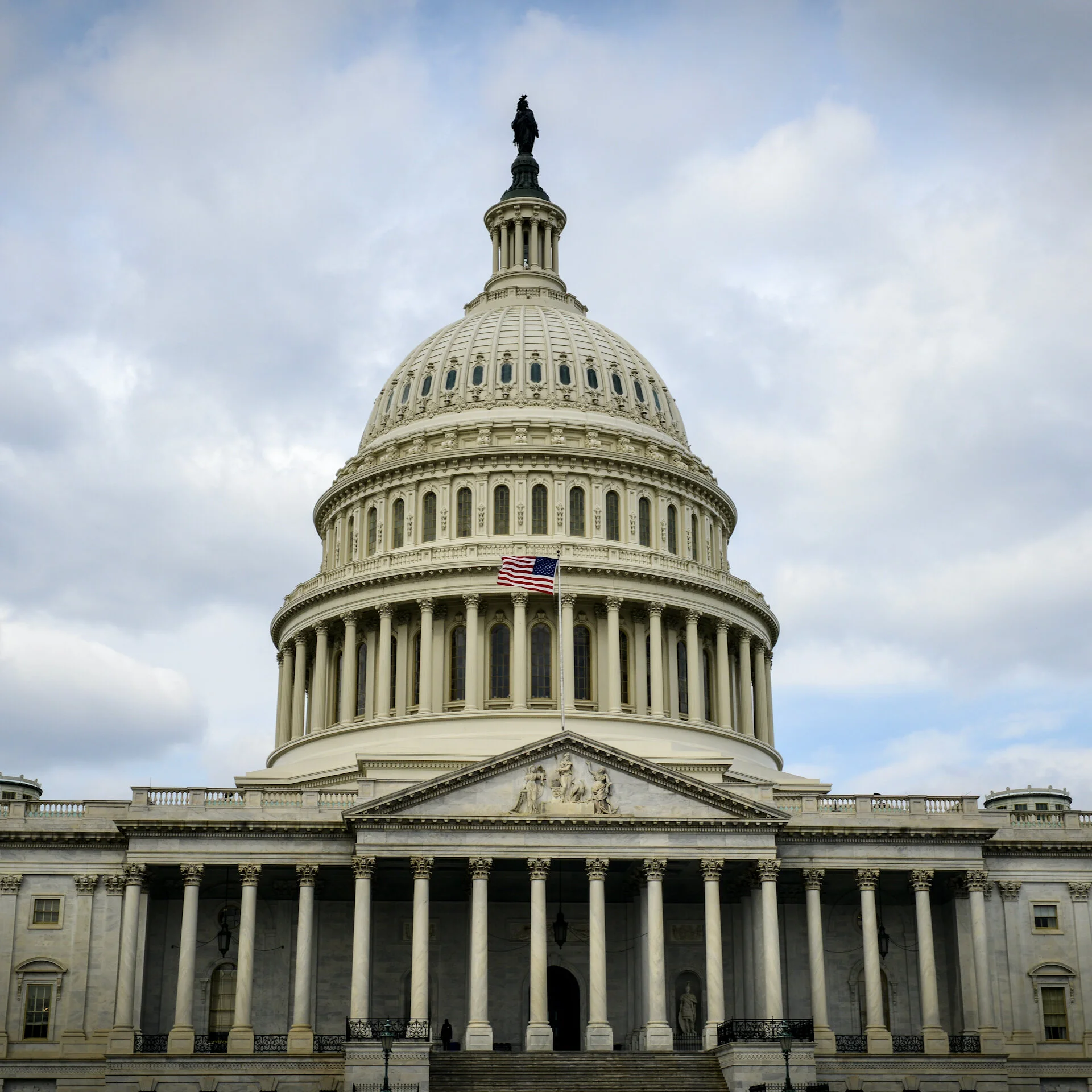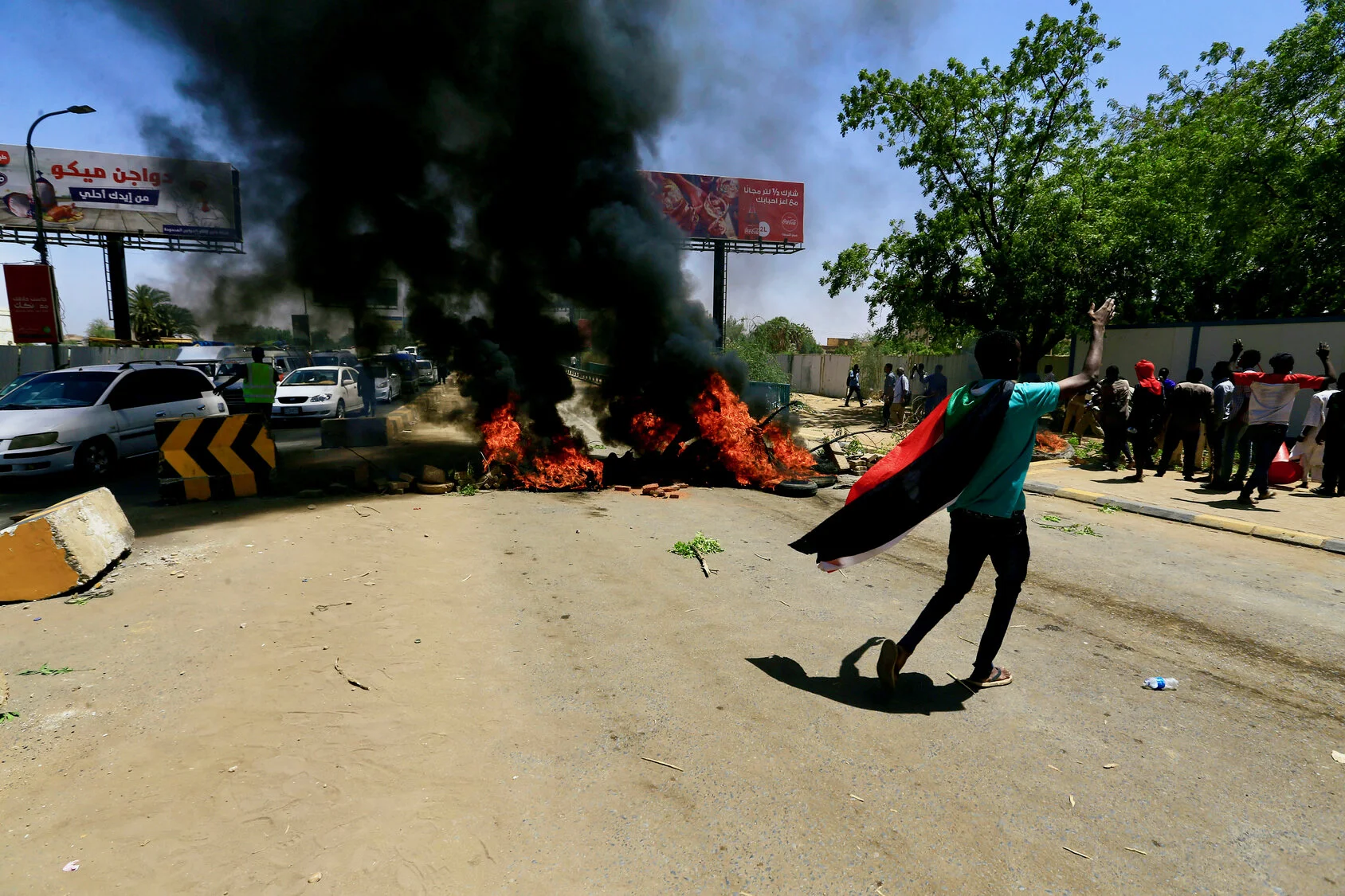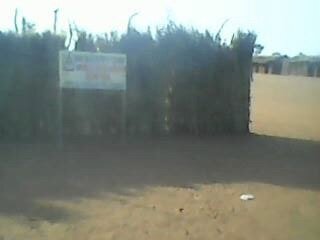News & Updates
Check out the latest from Sudan and our movement
Elie Wiesel Act Is Now U.S. Law
The long fight is finally over. We won. Together.
The Elie Wiesel Genocide and Atrocities Prevention Act is now federal law! For the first time, the prevention of atrocities is now legally considered to be in the U.S. national interest.
Yesterday, The Elie Wiesel Act was signed into federal law by the President of the United States. This is a moment our organization and 600+ of our supporters in Tennessee helped make possible. Last update, we mentioned that because of your advocacy the bill passed out of Congress with widespread and bipartisan support and was sent to the President.
What The Bill Does
S. 1158 is new federal legislation that helps ensure the U.S. government has the tools, training, and funding needed to save lives and promote peace when it becomes apparent that serious mass atrocity threats are emerging on foreign soil. Specifically, this legislation:
Affirms that atrocity prevention is in the U.S. national interest;
Calls on the government to pursue a government-wide strategy to: strengthen U.S. diplomatic, risk analysis/monitoring, early warning, and response capacities around atrocity crimes; improve the use of U.S. foreign assistance to address the root causes of violent conflict; strengthen support to transitional justice mechanisms and local civil society groups in countries at risk of or experiencing mass atrocities; support and strengthen local civil society, including human rights defenders and others working to help prevent and respond to atrocities; promote financial transparency and enhance anti-corruption initiatives as part of addressing causes of conditions that may lead to atrocities; and prioritize preventative diplomacy through unilateral, bilateral, and multilateral mechanisms;
Requires specialized training for Foreign Service Officers who will be deployed to a country experiencing or at risk of mass atrocities; and
Mandates annual reporting to Congress of the Executive Branch's efforts to prevent and respond to mass atrocities, provide an assessment of countries and regions at risk of such violence, and provide a report on Foreign Service Officer training.
Additional information about the bill and the full text can be found here.
We would like to thank all of you for raising up your voices around this bill. A special thank you to now retired Senator Corker for his leadership in seeing the Elie Wiesel Act moved through his committee and into the Senate. We would also like to thank Congressmen David Kustoff (R-TN) and Steve Cohen (D-TN) for cosponsoring the House version of this bill that passed that chamber in July, as well as for their yay votes on S.1158 in 2018.
The Protests In Sudan
An update on new protests that are spreading across Sudan.
Widespread protests that erupted in Sudan on December 19 over the rising prices of bread and fuel have morphed into calls for the kleptocratic and murderous Bashir regime to be removed from power. As expected, government security forces have unleashed live ammunition and tear gas into unarmed crowds. Amnesty International is reporting that at least 37 people have already been killed, but the death toll is now likely much higher.
Sudanese dictator and indicted war criminal Omar al-Bashir is pushing wild conspiracy theories that the protests are actually being driven by "traitors" and "foreign agents" and are not the result of his regime's reckless and devastating economic and security policies. He is now also blaming U.S. sanctions, ignoring the fact that they were lifted over a year ago. Other government officials who have long track records of being anti-semitic are blaming Israel. All three of these excuses are commonly used by the Sudanese government to try to whip up support when just about anything does not go their way.
In the following, we'll provide some background on why these protests are happening and why they are so important. And at the bottom of this post are a few ways you can get involved with empowering the Sudanese people.
Background
Since 1989, Sudan has been oppressed by one of the most violent, racist, and paranoid dictatorships in history. From launching devastating wars and genocides in the periphery regions of the country to supporting terrorist groups to oppressing civil society, the Bashir regime has spent the past 29 years enriching itself and a small elite while isolating the country from much of the international community. BRIEF OVERVIEW »
This latest round of protests in Sudan were triggered by rising bread prices, but they have roots that go back to the beginning of the Bashir regime. Since seizing power in 1989, the dictatorship has severely mismanaged the economy, even as it has fought costly and deadly genocidal wars in Darfur, the Nuba Mountains, Blue Nile, and what is now South Sudan. It is estimated that roughly 70% of government spending goes to the military and the oppressive security services. Oil revenue kept the economy largely afloat throughout the 1990s and early 2000s despite senseless spending, mass corruption, and US sanctions due to the government's support of international terrorists and their war crimes. When South Sudan became independent in 2011, the oil crutch largely left with it.
Sudan's economy has been in trouble ever since, but the past few years it has entered into a free-fall. Inflation has soared to almost 70%. Prices on basic commodities keep rising, even as government services continue to decrease. ATMs and banks in major cities often times cannot provide cash. And fragile ceasefires in the periphery regions of the country are barely holding together.
Simply put, oppressive and catastrophic governance has led to some really bad results. And the chickens are coming home to roost. Al Jazeera's Inside Story has a great piece that is worth a watch if you would like a deeper dive into why these protests are happening. Watch it here:
Where Protests Currently Stand
This is not the first time Sudanese citizens have protested the Bashir regime. 2011-2013 saw several protest movements of various sizes emerge. In September of 2013, government forces began killing protestors on a larger scale to repress open challenges to the dictatorship.
But current protests definitely look and feel very different than past ones. For starters, crowds are much larger and more widespread across the country. Protestors are not backing down in the face of the regime's use of live ammunition, tear gas, arrests, and torture. The protests really took off on December 19 when protestors torched the ruling regime's offices in Atbara. The few, vague promises Bashir has made about addressing the legitimate concerns being voiced by citizens have not calmed anyone down.
On December 25, thousands of Sudanese attempted to march on the presidential palace and demand a new government, but a massive deployment of troops, police, and government militia turned them back after unloading tear gas and targeted live ammunition into crowds. The demonstrators were chanting, "Peaceful, peaceful against the thieves" and "The people want to bring down the regime" before police opened fire.
Credible reports are beginning to emerge that government snipers are being deployed and have been given shoot to kill orders. Newspapers are being heavily censored or shut down, and the regime is blocking internet access to keep many Sudanese from uploading photos and videos so the outside world can get a clearer picture of what is happening at the street level. International journalists are being blocked from covering the protests. And, as is often the case when Sudanese protest the government, the regime's brutal National Intelligence and Security Service (NISS) is arresting journalists and other civil society leaders.
Where The Regime Currently Stands
The inner workings of Bashir's National Congress Party and the security services (military, police, NISS, Rapid Support Forces militia) have always been pretty opaque. Senior members of the dictatorship publicly and regularly voice their support for Bashir; however, Bashir has found himself in an increasingly weakened position the past several years. Between the International Criminal Court arrest warrants, self-inflicted collapsing economy, never-ending genocidal wars, grand corruption, and general out-of-touchness with the population, it is not that hard to understand why Bashir is so unpopular and reviled.
It has long been rumored that political divisions exist within the regime, but the nature of such distrust is largely unknown. It is well known that many senior army officers are guilty of participating in the Darfur genocide and hope to avoid prosecution for their crimes, which is a primary reason they have remained loyal to Bashir. Further down the command-and-control structure is a much different story, as many junior officers have long been sick of fighting the regime's senseless wars. It is possible that if army units are ordered to attack protestors on a larger scale, some of them may mutiny or refuse to obey orders.
Another wildcard is commander "Hemeti" of the Rapid Support Forces (RSF), the regime's genocidal paramilitary force. He is a murderous, narcissistic, and power-hungry opportunist who is loyal only to himself. You can get a good look at who he is here in one of our previous weekly e-newsletters. On December 25 and clearly not thinking things through, Hemeti declared to a group of RSF fighters stationed just outside of Khartoum that he and the RSF would soon be the new power to reckon with in Sudan. Later that day, he attempted to backpedal his comments and relink himself to Bashir regime and army. Regardless, Hemeti has already made it clear that he is willing to turn the RSF against the government for his own gain.
Because these protests are so different and there are early signs that some of the regime's security forces may be willing to turn against him, it is not a stretch to question how Bashir survives much longer as Sudan's dictator. But while Bashir’s fall from power would deal a significant blow to this brutal regime as it is currently structured, it would not guarantee the immediate end to the governance and economic catastrophe plaguing Sudan. Other dangerous and kleptocratic individuals within this paranoid dictatorship will never embrace their responsibility to protect the Sudanese people and, at least at the moment, it is largely those individuals who are lined up to seize power after Bashir goes.
How The International Community Is Responding
As has often been the case the past few years when it comes to international policy towards Sudan, the response to current protests and conditions in Sudan is far from good.
The Troika countries (Norway, the United Kingdom, and the United States) and the European Union have expressed only mild concern about the regime's targeting of protestors and other civic institutions in Sudan.
The U.S. State Department, which commonly speaks on behalf of the U.S. government concerning situations like the one right now in Sudan, has been mute outside of the Troika statement. Current actions by the Bashir regime represent many flagrant violations of the poorly structured U.S.-Sudan sanctions-lifting agreement and even more confusing next steps of improving the bilateral relationship as laid out by the Trump Administration. There are no signs that the current crisis in Sudan is even on the U.S. government's radar in any serious way.
Most disturbingly though, the European Union has directly funded the Rapid Support Forces for years as part of its efforts to curb migration into Europe. There are no signs that such support has stopped, which means the EU may now be funding RSF units that are currently shooting and beating unarmed protestors.
While it is true that it is ultimately up to the Sudanese people to decide the future of their country, the lack of smart and engaged public support from the international community to the protestors is deeply concerning. In the past, the Bashir regime has read such a lack of real engagement as license to increase its own brutality.
Where The Situation Is Heading
It is still too early to tell where these protests will take Sudan. It is increasingly difficult to imagine Bashir surviving this moment; however, he has spent the last several years avoiding arrest and trial at the International Criminal Court, staying ahead of possible coup attempts, and surviving past protests. He may be getting backed into a corner now, but that does not mean he is finished.
And if Bashir does fall, it is still unclear exactly who would take the reins of power in Khartoum, or if anyone would be able to at all.
What is clear is that this seems to be a breaking point for Sudan. The regime, specifically Bashir himself, has everything to lose by being forced out of power. More and more Sudanese have less and less to lose by demanding and fighting for real progress. This could all end with the beginnings of positive and lasting change in how Sudan is governed, or it could lead to even more bloodshed as a desperate and paranoid dictatorship clings to its last vestiges of power.
Elie Wiesel Act Passes Out of U.S. Congress
The bill now heads to the White House.
Yesterday, The Elie Wiesel Act was passed out of the United States Congress following a landslide House vote. This is a moment our organization and 600+ of our supporters in Tennessee helped make possible. Last update, we mentioned that because of your advocacy the bill was amended and passed out of the Senate Foreign Relations Committee and United States Senate.
Late Friday afternoon, the House voted 367-4 to send The Elie Wiesel Act to the President so it could be signed into law.
What The Bill Does
S. 1158 is new federal legislation that helps ensure the U.S. government has the tools, training, and funding needed to save lives and promote peace when it becomes apparent that serious mass atrocity threats are emerging on foreign soil. Specifically, this legislation:
Affirms that atrocity prevention is in the U.S. national interest;
Calls on the government to pursue a government-wide strategy to: strengthen U.S. diplomatic, risk analysis/monitoring, early warning, and response capacities around atrocity crimes; improve the use of U.S. foreign assistance to address the root causes of violent conflict; strengthen support to transitional justice mechanisms and local civil society groups in countries at risk of or experiencing mass atrocities; support and strengthen local civil society, including human rights defenders and others working to help prevent and respond to atrocities; promote financial transparency and enhance anti-corruption initiatives as part of addressing causes of conditions that may lead to atrocities; and prioritize preventative diplomacy through unilateral, bilateral, and multilateral mechanisms;
Requires specialized training for Foreign Service Officers who will be deployed to a country experiencing or at risk of mass atrocities; and
Mandates annual reporting to Congress of the Executive Branch's efforts to prevent and respond to mass atrocities, provide an assessment of countries and regions at risk of such violence, and provide a report on Foreign Service Officer training.
Additional information about the bill and the full text can be found here.
We would like to thank all of you for raising up your voices around this bill. A special thank you to Senator Corker for his leadership in seeing the Elie Wiesel Act moved through his committee and into the Senate. We would also like to thank Congressmen David Kustoff (R-TN) and Steve Cohen (D-TN) for cosponsoring the House version of this bill that passed that chamber in July, as well as for their yay votes on S.1158 yesterday
S.1158 is now sitting on the President's desk for his signature or veto.
December 2018 Endure Primary School Update
An update on the good work being done at the Endure Primary School in Yida Refugee Camp.
In 2015, Operation Broken Silence launched the Endure Campaign, a fundraising movement focused on sponsoring the Endure Primary School in Yida Refugee Camp, South Sudan. This is an update on how your fundraising and giving is leading to real results at this special school.
Background
People in the Nuba Mountains of Sudan have been living in emergency conditions since June of 2011, when the government of Sudan launched a relentless campaign of terror and death against their communities. The Sudanese government has officially banned all aid and media organizations from the Nuba Mountains in an attempt to cover up it’s war crimes. The deteriorating situation here has become a forgotten conflict for much of the world. Click or tap the map for a visual.
A fragile ceasefire is currently in effect in the Nuba Mountains, but many expect it not to last.
Tens of thousands of children have fled the war and genocide in the Nuba Mountains and are sitting in refugee camps where few educational services exist. Dozens of Nuba teachers have been unable to get back to work due to a lack of financial resources. This education crisis is an enormous long-term issue threatening the future of not only the Nuba people, but also all of Sudan.
Building and supporting classrooms, paying teacher salaries, and ensuring that children have access to a quality education is one of our organization's top priorities. You can watch the Endure Campaign video to see what that actually looks like on the ground:
Endure Primary School Update
Beginning in 2015 with the launch of the Endure Campaign, we began supporting four small classrooms in Yida Refugee Camp. Since then and entirely because of your fundraising and giving, this school now has ten classrooms led by twelve Nuba teachers and a principal. Every week they teach more than 700 students who have fled from the Nuba Mountains. Some of these children have lost their parents or been separated from them due to the Sudanese government's war.
Last update, we brought you information about a bad rainstorm in Yida that severely damaged most of the classrooms at the school. Thankfully no one was hurt, but attendance was temporarily cut by roughly 40% until repairs could be made. That was the bad news. The good news is that operations at the school are already back to normal!
Our Nuba education partner has informed us that all classrooms at the Endure Primary School have been repaired! This includes the new Primary 8 classroom added earlier this year. Here is a small photo slideshow of part of the school. We apologize that the pictures are a lower quality than usual. The camera our education coordinator normally uses was not in Yida when repairs were being wrapped up:
Attendance is already back up to just over 700 students. But your fundraising and giving this year didn't just help repair the school, your efforts also helped to expand things a bit.
A simple fence, which you can see in one of the above photos, has been added around the school property. Tarps are also being added as part of the roofing one classroom at a time, which will help keep maintenance costs down during the rainy season. The school has also added a small sports program that includes a male and female soccer team and a male and female volleyball team. And there is a small student choir that tours around Yida from time to time singing traditional Nuba songs!
The school also now has an unarmed security guard and a cook/cleaner. Both were hired from the local Nuba population in Yida.
The school's situation was desperate then, but today it is much improved. Here is a more recent photo from a few years ago when one of our media teams visited:
There is still much to work be done through the Endure Primary School in the coming months and years. While the school is one of the top performing in the area, textbooks remain a primary need at Endure, and every other school in Yida for that matter. Teachers could use some additional training, and chalkboards in roughly half of the classrooms need to be replaced.
Additionally, a curriculum change that occurred a while back transitioned the primary teaching and learning language to English, which means Arabic will have to be reintroduced back in as a seperate series of classes at some point.
Progress rarely occurs in Sudan overnight; however, becuase of your fundraising and giving the past several years, the Endure Primary School is in a much better place today than it was in 2012 when it was founded. The teachers and students have taken your support seriously and made it what it is today. On behalf of them, our Nuba education partner, and our small staff, thank you for joining us on this journey.
Here are a few ways you can be involved for the remainder of this year and into 2019:
December 2018 Renewal Secondary School Update
In 2018, Operation Broken Silence launched the Stand For Education Campaign, a fundraising movement focused on building the Renewal High School in Yida Refugee Camp, South Sudan. This marks the first update concerning the high school and is about how your fundraising and giving has put plans ahead of schedule.
Background
People in the Nuba Mountains of Sudan have been living in emergency conditions since June of 2011, when the government of Sudan launched a relentless campaign of terror and death against their communities. The Sudanese government has officially banned all aid and media organizations from the Nuba Mountains in an attempt to cover up their war crimes. The deteriorating situation here has become a forgotten conflict for much of the world. Click or tap the map for a visual.
A fragile ceasefire is currently in effect in the Nuba Mountains, but many expect it not to last.
Tens of thousands of children have fled the war and genocide in the Nuba Mountains and are sitting in refugee camps where not nearly enough educational services exist. Dozens of Nuba teachers have been unable to get back to work due to a lack of financial resources. Those that are working lack basic classroom items. This education crisis is an enormous long-term issue threatening the future of not only the Nuba people, but also all of Sudan.
Building and supporting classrooms, paying teacher salaries, and ensuring that children have access to a free education is one of our organization's top priorities. You can watch the Stand For Education campaign video to see what that actually looks like on the ground:
To date, 91 fundraisers, 232 donors, and 2 monthly recurring donors have worked togetherto fund the startup costs of The Renewal High School. Almost $15,000 has been raised and given already!
Construction on six classrooms, two teacher offices, and one library will begin in January 2019. This will make up the core of the school. More classrooms, a small lab, and one lecture hall are slated to be built between 2020-2022. Classroom walls will be made out of the traditional un-fired bricks that are common throughout Yida. It's nothing glamorous, but it gets the job done. The lecture hall can also be used as a space for teacher and community training needs in the future.
Materials that cannot be obtained in Yida are currently being procured in Juba and Kampala. This includes a small solar system, a computer and printer, tarps for roofing, cement, teacher guides and teacher textbooks, chalkboards, and more.
The school will be phased into existence, similar to how we have grown and supported the Endure Primary School in Yida. When The Renewal High School opens in 2019, the plan is for most components of the first three grades to be included. The final grade is slated to be added in 2020 as additional classrooms and materials are added. This phased approach also spreads out the fundraising burden on our organization, as well as provides our education coordinator additional time to work out kinks and additional teacher training needs at the school.
There is certainly a lot of work and long road ahead, but the process of making The Renewal High School a reality is now officially underway. Here are a few ways you can join us on this journey.
Elie Wiesel Act Passes Out Of U.S. Senate
Yesterday, The Elie Wiesel Act was passed out of the United States Senate by Unanimous Consent.
Yesterday, The Elie Wiesel Act was passed out of the United States Senate by Unanimous Consent. This is a moment our organization and 600+ of our supporters in Tennessee helped make possible. Last update, we mentioned that because of your advocacy, the bill was amended and passed out of the Senate Foreign Relations Committee.
What The Bill Does
S. 1158 is new federal legislation that helps ensure the U.S. government has the tools, training, and funding needed to save lives and promote peace when it becomes apparent that mass atrocity situations are becoming a threat on foreign soil. Specifically, this legislation:
Affirms that atrocity prevention is in the U.S. national interest;
Calls on the government to pursue a government-wide strategy to: strengthen U.S. diplomatic, risk analysis/monitoring, early warning, and response capacities around atrocity crimes; improve the use of U.S. foreign assistance to address the root causes of violent conflict; strengthen support to transitional justice mechanisms and local civil society groups in countries at risk of or experiencing mass atrocities; support and strengthen local civil society, including human rights defenders and others working to help prevent and respond to atrocities; promote financial transparency and enhance anti-corruption initiatives as part of addressing causes of conditions that may lead to atrocities; and prioritize preventative diplomacy through unilateral, bilateral, and multilateral mechanisms;
Requires specialized training for Foreign Service Officers who will be deployed to a country experiencing or at risk of mass atrocities; and
Mandates annual reporting to Congress of the Executive Branch's efforts to prevent and respond to mass atrocities, provide an assessment of countries and regions at risk of such violence, and provide a report on Foreign Service Officer training.
Additional information about the bill and the full text can be found here. We would like to thank all of you for raising up your voices around this bill, and we would like to thank Senator Corker for his leadership in seeing the Elie Wiesel Act moved through his committee and into the Senate.
S.1158 now heads to the U.S. House of Representatives.











